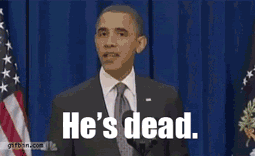I'm suspicious of superstitions, like astrology or the belief that "green jobs will fix the environment and the economy." I understand the appeal of such beliefs. People crave simple answers and want to believe that some higher power determines our fates.
The most socially destructive superstition of all is the intuitively appealing belief that problems are best solved by government.
Opinion polls suggest that Americans are dissatisfied with government. Yet whenever another crisis hits, the natural human instinct is to say, "Why doesn't the government do something?"
The most socially destructive superstition of all is the intuitively appealing belief that problems are best solved by government.
Opinion polls suggest that Americans are dissatisfied with government. Yet whenever another crisis hits, the natural human instinct is to say, "Why doesn't the government do something?"
And politicians appear to be problem-solvers. We believe them when they say, "Yes, we can!"
In 2008, when Barack Obama's supporters shouted, "Yes, we can!" they expressed faith in the power of government to solve problems. Some acted as if Obama were a magical politician whose election would end poverty and inequality and bring us to "the moment when the rise of the oceans began to slow and our planet began to heal."(Google)
At least now people have come to understand that presidents -- including this president -- can't perform miracles.
In other words: No, they can't! -- which happens to be the title of my new book.
Free people, however, do perform miracles, which is why "No's" subtitle is: "Why Government Fails -- But Individuals Succeed."
Those who believe an elite group of central planners can accomplish more than free people need some economics. I hope my book helps.
People vastly overestimate the ability of central planners to improve on the independent action of diverse individuals. What I've learned watching regulators is that they almost always make things worse. If regulators did nothing, the self-correcting mechanisms of the market would mitigate most problems with more finesse. And less cost.
But people don't get that. People instinctively say, "There ought to be a law."
If Americans keep voting for politicians who want to spend more money and pass more laws, the result will not be a country with fewer problems but a country that is governed by piecemeal socialism. We can debate the meaning of the word "socialism," but there's no doubt that we'd be less prosperous and less free.(Yahoo)
Economists tend to focus on the "prosperous" part of that statement. But the "free" part, which sounds vague, is just as important. Individuals and their freedom matter. Objecting to restrictions on individual choice is not just an arbitrary cultural attitude, it's a moral objection. If control over our own lives is diminished -- if we cannot tell the mob, or even just our neighbors, to leave us alone -- something changes in our character.












0 comments:
Post a Comment